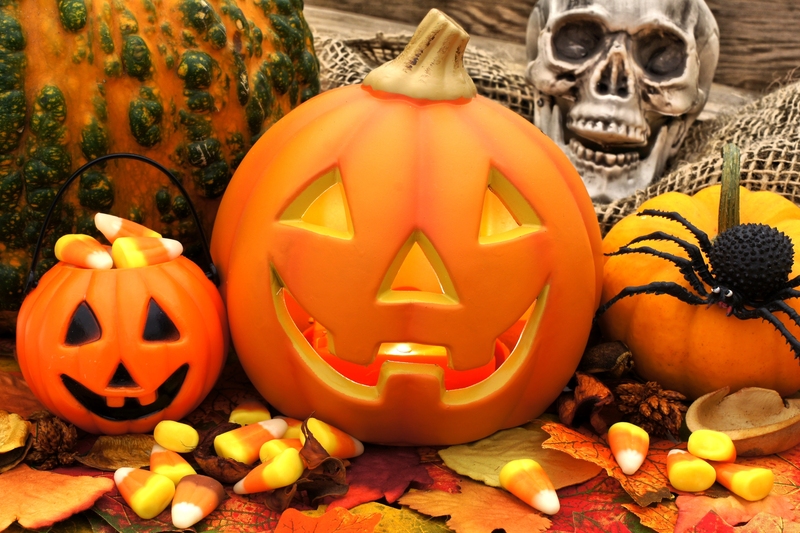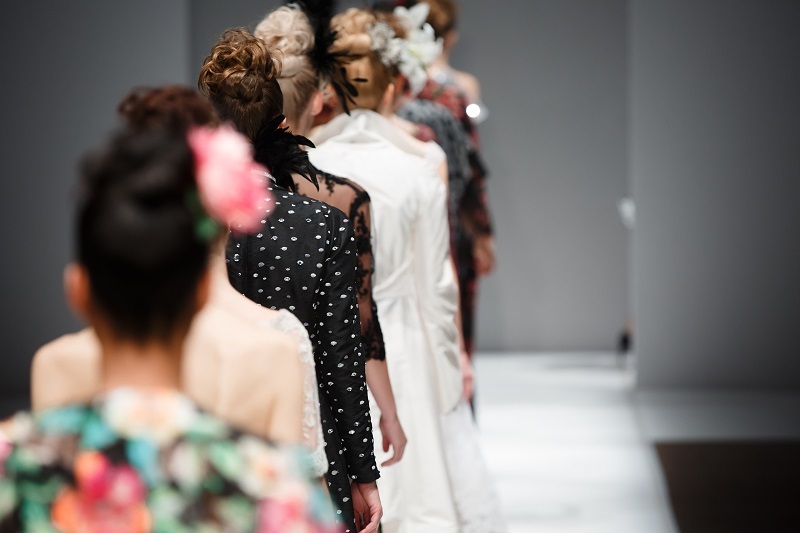Revealing the Depth of Your Birth Flower and Its Implications
Posted on 01/07/2025

Revealing the Depth of Your Birth Flower and Its Implications
Flowers have fascinated humanity for centuries, not just for their exquisite beauty but also for the intricate meanings and symbolism associated with them. Among these, birth flowers hold a special significance. Just as zodiac signs or birthstones can reveal layers about your personality and fate, your birth flower can be a key to understanding more about yourself. In this comprehensive article, we will uncover the truths behind birth flowers, their historical and cultural contexts, their intricate symbolism, and their various implications for your personality, relationships, and life journey.
What Are Birth Flowers?
A birth flower refers to a specific flower that is associated with the month in which you were born. This tradition, dating back to ancient times, is celebrated across various cultures. Every month of the year has its own unique birth flower--sometimes even two!--and each bloom carries its own story, tradition, and symbolism.
Choosing your birth flower or gifting someone with theirs offers a personalized and thoughtful gesture. But beyond that, exploring the implications of birth flowers can open up a world of insight into personal growth and self-understanding.
The Origins and History of Birth Flowers
The custom of associating flowers with particular months is believed to originate from a blend of both ancient Roman religious practices and early Christian traditions. In the Victorian era, the "language of flowers" (floriography) flourished, with people sending coded messages via floral arrangements. Birth flowers became especially popular, symbolizing qualities believed to be inherent to those born in their respective months.
Throughout history, birth flowers have also been used in ceremonies, rituals, and even as ingredients in folk remedies, indicating how deeply embedded this tradition is in various cultures.
List of Birth Flowers by Month and Their Meanings
Here's an in-depth look into each birth flower, their unique symbolism, and what they might reveal about you.
- January - Carnation & Snowdrop: Carnations symbolize love, fascination, and distinction, while snowdrops represent hope and a fresh start, mirroring the new beginnings of the year.
- February - Violet & Primrose: Violets are associated with modesty and faithfulness. Primroses speak to young love and the early promise of spring.
- March - Daffodil: This sunny flower represents rebirth, new beginnings, and unflagging optimism.
- April - Daisy & Sweet Pea: Daisies stand for innocence and purity, while sweet peas symbolize gratitude and pleasure.
- May - Lily of the Valley & Hawthorn: These convey sweetness, humility, and a return to happiness. Hawthorn also symbolizes hope and supreme happiness.
- June - Rose & Honeysuckle: Roses, the ultimate symbol of love, also represent passion and admiration. Honeysuckle signifies devoted affection and everlasting bonds.
- July - Larkspur & Water Lily: Larkspur embodies positivity, an open heart, and ardent attachment, while water lilies signify purity and majesty.
- August - Gladiolus & Poppy: Gladiolus stands for strength of character, integrity, and infatuation. Poppies are symbols of remembrance and peace.
- September - Aster & Morning Glory: Asters represent wisdom, valor, and faith. Morning glories echo the sentiments of affection and the ephemeral nature of love.
- October - Marigold & Cosmos: Marigolds symbolize passion and creativity, while cosmos flaunt harmony and tranquility.
- November - Chrysanthemum: These blooms are all about loyalty, joy, and a life well lived.
- December - Narcissus & Holly: Narcissus stands for self-esteem and respect, while holly carries messages of protection and festivity.
The Psychology Behind Birth Flowers
The notion that nature can provide clues to one's inner landscape is ancient and compelling. Psychologically, exploring your birth flower meaning can offer fresh perspectives on the strengths and challenges you might experience in life. Just as personality types can be categorized, your birth flower is believed to reflect innate traits and values:
- Carnation (January): People with this birth flower are thought to be loyal, steadfast, and deep thinkers.
- Daffodil (March): Those born in March might embody cheerfulness, hopefulness, and a resilient spirit.
- Rose (June): June-born individuals may be passionate, nurturing, and romantic at heart.
Of course, these are broad generalizations, but many find them surprisingly resonant. Perhaps this is because flowers and their symbolism tap into universal themes and emotions--a language deeply rooted in human consciousness.
Birth Flowers Across Cultures: Global Symbolism
The concept of birth flowers is global, with different regions attributing unique symbolism to various blooms:
- Japan: Each month is assigned a "Hanakotoba," the Japanese language of flowers, adding layers of meaning.
- India: Flowers play a significant role in rituals and festivals, with specific flowers associated with gods, goddesses, and auspicious events.
- Western countries: The Victorian floriography tradition heavily influences today's Western list of birth flowers and their meanings.
Understanding your birth flower in a multicultural context reveals both the unity and diversity in human expression through nature's palette.
How to Utilize Your Birth Flower: Practical Implications
Discovering your birth month flower isn't just about curiosity--it can also have practical implications in your daily life:
- Personalization: Incorporate your birth flower into jewelry, home decor, or clothing to express your identity.
- Mindfulness: Use your birth flower as a focus in meditation or visualization, promoting connection to self and nature.
- Relationships: Gifting someone their birth flower is a deeply personal gesture that acknowledges their individuality.
- Celebrations: Enhance birthdays, weddings, and anniversaries by including birth flowers in bouquets and decorations.
By integrating the meaning and symbolism of your birth flower into various aspects of your life, you can foster both personal growth and deeper connections with others.
Birth Flowers and Astrology: A Blossoming Connection
Many enthusiasts find the study of flowers and astrology to be interwoven. Just as your birth chart reveals celestial influences, your birth flower can complement this insight by representing earth's subtle messages.
- Fire signs (Aries, Leo, Sagittarius): Often linked with vibrant or passionate flowers like marigolds and roses.
- Water signs (Cancer, Scorpio, Pisces): Typically connected with soothing or emotional blooms such as lilies and water lilies.
- Air signs (Gemini, Libra, Aquarius): Associated with light, airy flowers like daisies, asters, and carnations.
- Earth signs (Taurus, Virgo, Capricorn): Correlate with grounded, elegant blooms like lily-of-the-valley and holly.
Matching your birth flower with your astrological sign can add a unique layer to your personal symbolism, amplifying the energy you manifest and share with the world.
The Science and Health Benefits of Birth Flowers
The implications of birth flowers go beyond symbolism. Many birth flowers are known for their physical benefits:
- Daisy: Used in traditional teas for its calming properties.
- Hawthorn: Long used as a remedy for heart health and circulation.
- Rose: Rose petals and rose water are staples in skin care and aromatherapy, promoting relaxation and healing.
Incorporating your birth flower into wellness routines can be a gentle way to connect to nature while supporting your physical well-being.
Beyond the Bouquet: Creative Uses for Your Birth Flower
You do not have to limit your exploration of birth flowers to bouquets or single blooms. Here are some creative ways to celebrate your birth month flower:
- Art Projects: Paint, embroider, or sculpt your birth flower for personal decor or gifts.
- Gardening: Plant your birth flower in your garden or balcony, fostering a deeper connection as you nurture it.
- Culinary Delights: Edible birth flowers, like violets and nasturtiums, can be added to salads or desserts.
- Mindful Journaling: Reflect on the symbolism of your birth flower and how its attributes appear in your life.
These practices not only celebrate your individuality but also promote mindfulness and appreciation for the natural world.
Gifting Etiquette: Sharing the Magic of Birth Flowers
Gifting birth flowers is a tradition that has spanned generations. Giving someone a personalized floral arrangement featuring their birth flower communicates thoughtfulness and affection. It is ideal for:
- Birthdays: Infuse celebrations with personal meaning.
- Anniversaries: Honor the recipient's unique qualities.
- Mother's Day and Father's Day: Recognize the role of parents by including their birth flowers in gifts.
- Valentine's Day: Roses are popular, but personalizing with a partner's birth flower adds an unforgettable touch.
Etiquette tip: It's always best to check if the recipient has allergies to particular flowers before gifting.
Birth Flowers in Modern Pop Culture
In recent years, birth flowers have surged in popularity in jewelry, tattoos, and fashion. Wearing or displaying your birth flower is seen as a symbol of pride in personal heritage, self-acceptance, and a connection to nature. Celebrities and influencers often share designs featuring their birth flowers, further cementing this blossoming trend.
FAQs: Answering Your Birth Flower Questions
Q: Can I have more than one birth flower?
Yes, some months have more than one flower, and some cultures assign additional or alternative blooms--allowing for a personalized choice!
Q: How accurate are birth flower interpretations?
Interpretations are symbolic and general, much like horoscope readings. While not prescriptive, many find meaning and resonance in the traits.
Q: Is it possible to choose a different flower if I prefer another bloom?
Absolutely! While tradition assigns a particular flower to your birth month, your affinity for another flower can be equally meaningful.
Q: What if my birth flower is rare or unavailable locally?
You can embrace the symbolism in art, jewelry, or even virtual images if sourcing the actual flower is challenging.

Conclusion: Embrace the Deeper Meaning of Your Birth Flower
Your birth flower is more than a symbol--it's a reflection of heritage, culture, and the personal qualities you hold. By uncovering the depth and implication of your birth flower, you embark on a journey of self-understanding and appreciation for the intricate bond between humanity and nature.
Whether you cultivate your birth flower, wear it in jewelry, celebrate it in art, or simply reflect on its meaning, you invite beauty and mindfulness into your daily life. Revealing the depth of your birth flower and its implications is a timeless pursuit--one that blooms anew with each discovery.
Let your personal flower serve as a gentle reminder of your unique nature and the possibilities that blossom from understanding your place in the cycle of life.
Latest Posts
The 5 Floral Icons for a Memorable Valentine's Gift
The fascinating symbolism and color meanings of peony flowers
Find your floral match: a reflection of your nature
Revealing the Depth of Your Birth Flower and Its Implications






